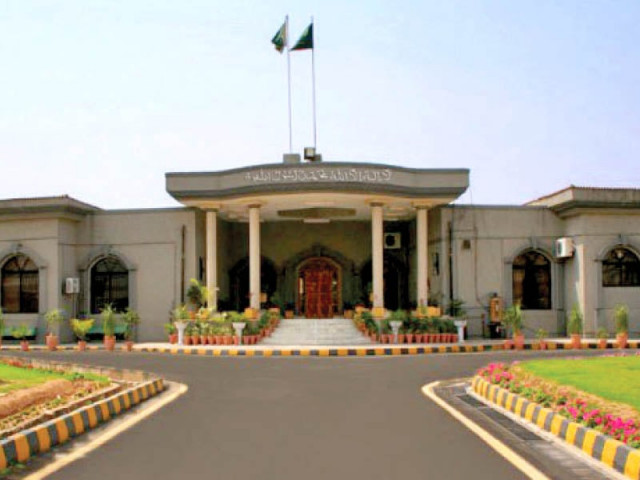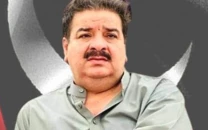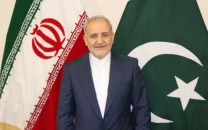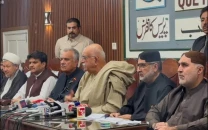Election tribunals likely to decide rigging disputes
PTI candidates trying to obtain relief either from ECP or superior courts

Despite the suspension of notification regarding the victory of three MNAs by the Islamabad High Court, the final fate of the alleged election-rigging disputes are likely to be decided by the election tribunals, which is a time-consuming process.
However, the current week is very significant as either the superior judiciary or the Election Commission of Pakistan (ECP) will look into the matter or the matter will be referred to the election tribunals for trial.
The PTI candidates are trying to obtain relief either from the ECP through summary proceedings or the superior courts.
The ECP will take up the PTI candidates’ complaints today (Tuesday) against the issuance of final results without considering the Form-45 results given by the presiding officers.
The IHC division bench led by Justice Miangul Hassan Aurangzeb will resume the hearing on election matters on Wednesday.
The PTI lawyers are hoping for some relief from this bench. However, PTI founder Imran Khan and his wife, Bushra Bibi, mistrust IHC Chief Justice Aamer Farooq.
The PTI has an advantage that some lawyers who contested the elections are aggrieved by the final results. Now, they are approaching every legal forum for relief though they have no support from both the superior bars – Pakistan Bar Council and Supreme Court Bar Association. However, it is being witnessed that the PTI has no one policy to challenge the election results.
A PTI lawyer agreed that the aggrieved candidates should have approached the Supreme Court on this controversy. However, a senior lawyer believes that final adjudication of election disputes by the superior courts will change the settled law and also create grave complications.
He believes that the apex court should give a strict timeline to the election tribunals for final decisions of election petitions. He expressed apprehension that if the superior courts intervene, then every losing candidate will want the same treatment.
The sanctity of ballot is likely to be undermined, he added. However, the PTI lawyer disagreed with the contention, saying that if the SC allows this election fraud, then there will be serious implications on democracy.
This bad precedent of election rigging through issuance of Form-47 will be remembered for decades and it will be misused in the election process every time, he added.
The PTI lawyer also states that adjudication of election tribunal is a time-consuming process.
Even if the tribunal de-seats any candidate, then he may get a stay order from the apex court.
There is a need that the SC should form an inquiry commission to probe the allegations of alleged systematic rigging in the elections, he added.
Hafiz Hussain Khokhar advocate has said that the ECP does have jurisdiction under Section 9 read with other provisions relating to all corrupt practices regarding the election matters and can pass any order. However, when the election tribunals have been notified under Section 140 of the Elections Act 2017 for the entertainment and adjudication of election petitions, then no court, including the high courts, can exercise their jurisdiction relating to the election matter of a particular constituency or many constituencies in view of bar contained in Article 225 of the Constitution where it has been described that all election disputes will be decided by tribunals and this legal proposition in such a way has been many times decided by the SC and different high courts through their various judgments.
He also said that generally, the high court declines from interfering in constitutional jurisdiction relating to post-election matters or corrupt election practices, and this has been evident from the recent orders of the high court where all these types of applications filed in writ jurisdiction after this general election were forwarded to the ECP to be decided in accordance with law.
A three-judge bench of the apex court led by Chief Justice of Pakistan Qazi Faez Isa will take up ex-military officer Ali Khan's petition on Wednesday, which seeks a declaration that the February 8 elections were rigged, urging for a fresh round.
The PTI has disadvantage that all state institutions are on the same page regarding major issues.
Although the petitioner has requested for withdrawal of the petition, the bench is determined to decide it on merit.
The SC has ordered to serve notice on the petitioner through the defence ministry or the SHO concerned.
Justice Syed Mansoor Ali Shah in ex-army chief Gen (retd) Qamar Javed Bajwa job extension case had noted that a public interest litigation (PIL) can only be withdrawn with the permission of the court.
This is because it does not raise a personal issue limited to the petitioner; it is not a dominis litis (the person to whom a suit belongs) that would give a right to the petitioner to withdraw it as a matter of choice. “In granting the permission (to withdraw) the Court would be guided by considerations of public interest and would also ensure that it does not result in the abuse of the process of law.
“Courts must guard against possibilities of such litigants settling the matters out of Court to their advantage and then seeking withdrawal of the case.
“Sometimes withdrawal of a public interest litigation, for oblique ends, can be used to the detriment of the public interest agitated therein. The Court has to be cautious not to fall prey to such oblique motives. The proceedings in public interest litigation are inquisitorial in nature and, therefore, the request for withdrawal of such litigation must always be weighed in the light of the question of public importance raised in it.
“A petitioner initiating public interest litigation is, therefore, not entitled to withdraw the petition at his sweet will. The Court, however, may permit withdrawal of such litigation on considering the nature of the matter agitated therein and ensuring that it does not involve abuse of the process of law,", the detailed judgement authored by Justice Shah said.
Hafiz Ahsaan Ahmad also highlighted that in three provinces and in the capital, the election tribunals have been notified and the judges of respective high courts have been designated for such election petitions, thus all pending cases relating to the election disputes of general elections 2024 would ultimately be decided by them in 120 days and not by the high courts in writ jurisdiction, and these pending matters before the appointment of election tribunal would ultimately land in election tribunal.



















COMMENTS
Comments are moderated and generally will be posted if they are on-topic and not abusive.
For more information, please see our Comments FAQ